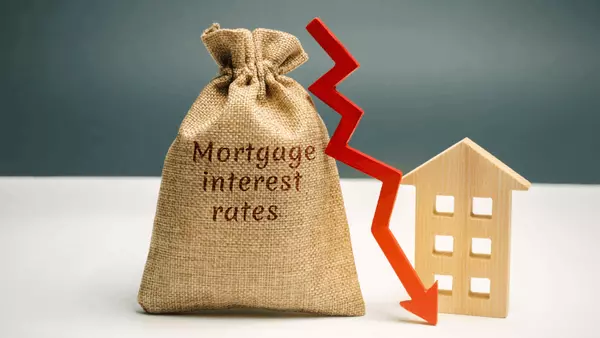What Credit Score Do You Really Need To Buy a House

Buying a house is a significant financial commitment, and one of the key factors that can influence your ability to secure a mortgage is your credit score. Your credit score is a numerical representation of your creditworthiness, and lenders use it to assess the risk of lending you money.
But what credit score do you really need to buy a house? Let’s break it down.
Understanding Credit Scores
Credit scores range from 300 to 850, with higher scores indicating better credit health. They are calculated based on various factors, including your payment history, amounts owed, length of credit history, types of credit used, and new credit inquiries.
Minimum Credit Score Requirements
While the exact credit score needed to buy a house can vary depending on the type of mortgage and the lender, here are some general guidelines:
But what credit score do you really need to buy a house? Let’s break it down.
Understanding Credit Scores
Credit scores range from 300 to 850, with higher scores indicating better credit health. They are calculated based on various factors, including your payment history, amounts owed, length of credit history, types of credit used, and new credit inquiries.
Minimum Credit Score Requirements
While the exact credit score needed to buy a house can vary depending on the type of mortgage and the lender, here are some general guidelines:
- Conventional Loans:
- Minimum Score: 620
- Conventional loans are not insured by the federal government and typically have stricter credit score requirements. A score of 620 is often the minimum required, but higher scores are preferred to secure better interest rates and terms.
- FHA Loans:
- Minimum Score: 500 (with 10% down payment) or 580 (with 3.5% down payment)
- FHA loans are backed by the Federal Housing Administration and are designed to help first-time homebuyers and those with lower credit scores. With a score of 580, you may qualify for a lower down payment, while scores as low as 500 may still qualify but require a higher down payment.
- VA Loans:
- Minimum Score: Varies by lender, typically 620
- VA loans are available to veterans, active-duty service members, and certain members of the National Guard and Reserves. While the VA does not set a minimum credit score, most lenders require a score of at least 620.
- USDA Loans:
- Minimum Score: 640
- USDA loans are designed for rural homebuyers with low to moderate incomes. These loans are backed by the U.S. Department of Agriculture and generally require a minimum credit score of 640.
Why Your Credit Score MattersYour credit score impacts several aspects of the homebuying process, including:
- Interest Rates: Higher credit scores typically qualify for lower interest rates, which can save you thousands of dollars over the life of the loan.
- Loan Approval: Lenders are more likely to approve your mortgage application if you have a higher credit score.
- Loan Terms: Better credit scores can lead to more favorable loan terms, such as lower down payments and reduced fees.
Improving Your Credit ScoreIf your credit score is not where you want it to be, there are steps you can take to improve it:
- Check Your Credit Report: Obtain a free copy of your credit report from each of the three major credit bureaus (Equifax, Experian, and TransUnion) and review it for errors.
- Pay Your Bills on Time: Your payment history is a significant factor in your credit score. Make sure to pay all your bills on time.
- Reduce Debt: Lowering your credit card balances and overall debt can help improve your credit score.
- Avoid New Credit Inquiries: Try to avoid applying for new credit in the months leading up to your mortgage application, as multiple inquiries can lower your score.
Final Thoughts
While having a higher credit score can make the homebuying process easier and more affordable, it’s important to remember that there are options available for those with lower scores. By understanding the credit score requirements for different types of loans and taking steps to improve your credit, you can increase your chances of securing a mortgage and buying your dream home.
If you have any questions or need personalized advice on your homebuying journey, feel free to reach out.We're here to help you every step of the way!
While having a higher credit score can make the homebuying process easier and more affordable, it’s important to remember that there are options available for those with lower scores. By understanding the credit score requirements for different types of loans and taking steps to improve your credit, you can increase your chances of securing a mortgage and buying your dream home.
If you have any questions or need personalized advice on your homebuying journey, feel free to reach out.We're here to help you every step of the way!
Categories
- All Blogs (292)
- All about Boston (49)
- Buyer Tips (138)
- December Home Maintenance and Safety Tips (1)
- FUN Facts (10)
- Home Décor Ideas (25)
- Home Improvements (1)
- Home Maintenance and Safety Tips (14)
- Infographics (10)
- Investing (81)
- Monday Motivation (6)
- Real Estate (86)
- Seller Tips (104)
- Storage and Organization (8)
- The Open Door Podcast (2)
- The truth about Real Estate (135)
- Tips (83)
Recent Posts

Spring 2026 in Boston Real Estate: What to Expect Before You List or Buy

Top Home Features Boston Buyers Will Want in 2026

Navigating Mortgage Rates & Affordability in Boston in 2026

Boston Real Estate Market Outlook for 2026: What Buyers & Sellers Should Know

4 Reasons Your House Is High on Every Buyer’s Wish List This Season

Why Buying a Home Still Pays Off in the Long Run

Should You Buy a Home in December? What Boston Buyers Need to Know

Boston Neighborhoods That Hold Their Value, Even in a Shifting Market

The Coziest Homes I Toured This Year — And What Made Buyers Fall in Love

Why December Is the Best Month to Prep Your Home for a Spring Listing

"My job is to find and attract mastery-based agents to the office, protect the culture, and make sure everyone is happy! "
